
In many ways, the history of the queer movement is not just about progress toward equality. It is the history that involves violent, sometimes fatal, backlash.
Last month’s deadly shooting at Club Q, the Colorado Springs LGBTQ+ bar, was the latest in a long string of attacks on our bodies and our lives. A new study by the Williams Institute at UCLA School of Law found that LGBT people are nine times more likely than non-LGBT people to be victims of violent hate crimes.
Increasingly, as the nation has armed itself to an alarming degree, this violence is more likely to be carried out with automatic weapons and in queer spaces once considered safe.
The horrific attack in Colorado claimed the lives of five people and injured over a dozen more, harkening back to a previous instance of large-scale gun violence in a queer space, especially 2016’s massacre at Pulse Nightclub in Orlando. That shooting left 49 people dead and 53 more injured. (The shooter in Colorado has since been charged with 305 criminal counts, including five counts of bias-motivated crimes resulting in bodily harm and five counts of murder.)
Related: Colorado Springs comes together to mourn victims of Club Q shooting
View this post on Instagram
Of course, violence doesn’t occur in a silo. The federal government began tracking hate crimes based on sexual orientation in 1990 and gender identity in 2013. Annual FBI reports have noted steady increases in transphobic hate crimes (and hate crimes overall) since the mid-2010s. This coincides with former President Donald Trump’s administration, where queer animus skyrocketed.
But prior to that, the horrific 1998 murder of Matthew Shepard — a 21-year-old college student who was tortured and beaten to death— was a terrible memory etched in the collective queer consciousness. Even watershed moments for our community, like the 1969 uprising at New York City’s Stonewall Inn, was a courageous pushback against violence and extortion targeting the bar’s patrons.
How about we take this to the next level?
Our newsletter is like a refreshing cocktail (or mocktail) of LGBTQ+ entertainment and pop culture, served up with a side of eye-candy.
Related: Authentic Voices of Pride — The Stonewall Generation
It’s difficult to say for sure how much of this is the result of gun violence, although gun-related murders in the U.S. are surging. In 2020 alone, more than 19,000 Americans died in gun murders, marking a staggering 75% increase over the past decade.

To better understand last month’s shooting at Club Q, and the history of similar acts, Queerty spoke to Doug Meyer, author of 2015’s Violence Against Queer People: Race, Class, Gender, and the Persistence of Anti-LGBT Discrimination, as well as Violent Differences: The Importance of Race in Sexual Assault against Queer Men, published this September.
Meyer is an assistant professor of Women, Gender & Sexuality Studies at the University of Virginia in Charlottesville. In a tragic coincidence, UVA was also the site of a fatal shooting spree on Sunday, November 13, just days before Club Q. Three students were killed; two more were injured.
“I’ve had to specify to my friends which shooting I was referring to before speaking about it,” Meyer said. “That’s the point we’ve come to [in the United States]: Gun violence is so common that multiple shootings are happening within a week.”
Meyer spoke about the tragedy at Club Q, including what context is missing from most mainstream media coverage and how gun control advocacy and queer activism are interwoven.
As a scholar of anti-LGBTQ+ violence, what was your initial reaction to the Club Q tragedy?
I was sad and angry more than anything — angry that we have to live in a country where people continue to be murdered due to gun violence, and in this case, possibly because of anti-queer bias on the part of the shooter. Even if this attack turns out not to be motivated by anti-queer bias, we should still understand anti-LGBTQ+ prejudice broadly. For example, people on the right have been using very aggressive language as of late, especially towards trans people. So I understand the frustration that many queer people feel about people on the right who will make these, and then express shock and outrage that something like this shooting could occur. If we start from the place that bias is never okay, then those discriminatory comments can be seen as contributing to a culture that’s already not queer-friendly.
After the shooting, I also became a little disheartened by how a lot of people focused on the courage of the person who stopped the shooter. From what I’ve seen, this has been the dominant media focus. I want to be clear: I’m not dismissing how much courage and bravery that must have taken. It’s a heroic act. But one thing I’ve continually noticed when the media focuses on violence against marginalized groups is that there’s this tendency to depoliticize it, and I want to be sure we don’t do that. There are more important conversations to be had than the heroism of the individual who stopped the shooter because, in many cases, that isn’t going to be possible. Long term, it doesn’t help us reduce violence. This is an individualistic response to a social problem, and we need to focus on the social conditions that enable it.

The shooter who attacked Club Q is nonbinary, according to their lawyers. How does this information, which may well be false, change the narrative, if at all?
I don’t know that it changes that much, but I am concerned that some groups will use this information to increase prejudice against nonbinary people. There’s a mocking of gender-neutral pronouns that is fairly widespread in our culture now — even, I would argue, in some LGBTQ+ circles. So we have to be careful about that or be sure to push back against it when we see it.
I also think it’s interesting that the media hasn’t focused on [the shooter’s identity] as much as in some other cases. In the case of, say, the Pulse shooting in 2016, one of the predominant media narratives was focusing on how [the shooter] Omar Mateen was on gay dating or sex apps. There was this idea that he was closeted. However, that turned out to be inaccurate … but in many cases, it never really got corrected. Part of that was because of racialized ideas that a Muslim man couldn’t be out as gay. There was this idea that he hated himself, and that’s why he committed the attack. We see those narratives pop up again and again around people of color, but less often when the shooter is white.
Are there any other parallels you’ve noticed between the Pulse massacre and the shooting at Club Q?
The first place my mind went was the differences. The main difference I see is that there’s now evidence that the attack at Pulse was not motivated by anti-LGBTQ+ prejudice. Mateen was going to do that shooting at Disney Springs, but then he decided not to do so because the security presence was too high. There’s not evidence that he knew Pulse was a gay club. He searched downtown Orlando nightclubs on his cell phone before going to Pulse.
“The media tends to focus on homophobia or racism, and what gets left out of those conversations is experiences where both of those things are at work simultaneously.” — Doug Meyer
With the shooting in Colorado Springs, as far as I understand, we don’t know the answer to this question yet. It may have been motivated by anti-LGBTQ+ prejudice, or it may not have been. There’s often a rush to judgment when big events like this happen, but the truth can take a while to come out. There’s also pressure to emphasize one causal factor when there are often multiple things at play. That’s part of what my research is about: how the media tends to focus on homophobia or racism, and what gets left out of those conversations is experiences where both of those things are at work simultaneously.
I do think there’s some overlap between both of the shootings. In both cases, the shooter had a history of misogynistic violence. So part of what I think would be helpful is for people to see the connections between these various forms of violence against marginalized groups, whether that’s LGBTQ+ people, women, or people of color. And, of course, those groups are not mutually exclusive. They intersect.

Both of these incidents happened in public at queer bars. Can you talk about why that’s significant?
It underscores the very real existence of heteronormativity [the presumption that being straight is “natural” and normal] and anti-LGBTQ+ bias. And I think there are increasing pressures not to speak about those things — to pretend that we live in a world where anyone can be who they want to be with regard to sexuality and gender identity. Incidents of violence [in queer spaces] may be the most vivid or outward example of bias. They are a reminder of the oppression queer people continue to face.
How does the tragedy at Club Q fit into the broader conversation about America’s gun violence epidemic?
This is another instance where [we] could all do better at thinking about the overlaps between queer politics and gun control. I know a lot of gun control advocates have yelled “shame!” repeatedly at politicians who voted against gun control measures. Some of those tactics come quite directly from ACT UP activism that occurred in the 1980s in this country. Those links between gun control advocacy and activism are already there. There’s a history of it, and hopefully, it can continue to grow.

Have you noticed any trends regarding anti-queer violence in the U.S. over the past few years, particularly during or after the Trump administration?
There’s some evidence that violence increased during the Trump years. I find that likely — or more than likely — but it may ultimately be unknowable because groups that release those figures have an interest in advancing that claim. Regardless, the Trump administration had a terrible record on LGBTQ+ rights, and a lot of groups on the right became emboldened throughout his administration. That included more aggressive responses towards LGBTQ+ people, especially trans people.
The Trump Administration has removed @JohnKerry’s apology for anti-#LGBTQ witch hunts from @TheStateDept website https://t.co/YQQHaQsc24
— Human Rights Campaign (@HRC) January 23, 2017
And how does this hateful rhetoric inform acts of violence?
It contributes to an atmosphere in which lives and identities are not valued. And I think that’s what we need to see and assert: the ways that LGBTQ+ people contribute to society in the U.S. Some scholars have argued that the media’s focus on violence is misguided because it can reinforce the idea that life is full of misery and sadness and without joy. I agree with those scholars that it can do that — it can make trans people more fearful, for example. But I also think there are ways to speak about violence against queer people that don’t do that, especially ways that draw more attention to underlying inequality and then help us think about ways of undoing that inequality.
Activism doesn’t necessarily require being on the streets and protesting. People can support organizations that need funding if they can afford to do so. Find the local group in your state or community that engages in this activism, ideally one that includes anti-racist work. — Doug Meyer
Speaking of inequality, what are some systemic changes you believe need to happen to prevent further acts of violence?
The systemic changes that need to occur are about reducing anti-gay and anti-trans bias, but also white supremacy and institutional sexism. I haven’t spoken a lot about social class, but poverty also contributes to a lot of violence in this country. Policies that reduce class inequality can be understood as contributing to this work. I think marginalized groups are very aware of how gun control legislation can benefit us, too.
I know many of us are feeling scared and powerless right now. Are there any actions everyday people can take to further this cause?
It would be helpful for more people to get involved in combating social inequalities. And in the U.S., we’re not trained to do this. We’re trained to focus on ourselves because of the widespread individualism of this country. Of course, a lot of people also do not have the resources to engage in things like activism. It’s a privilege to have the time, money, and energy to do so. But activism doesn’t necessarily require being on the streets and protesting. People can support organizations that need funding if they can afford to do so. Find the local group in your state or community that engages in this activism, ideally one that includes anti-racist work.
Organizers speak about building movements. The more people who sign up for that work or support movements that are doing that work, the better off we will be in the long run in combating all of the discriminatory ideas that fuel so much of this violence.
***
Correction: An earlier version of this article incorrectly cited the year of Matthew Shepard’s murder. The date has been amended to 1998.
This article includes links that may result in a small affiliate share for purchased products, which helps support independent LGBTQ+ media.


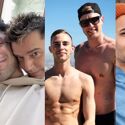

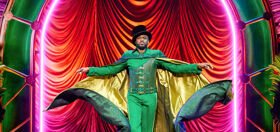



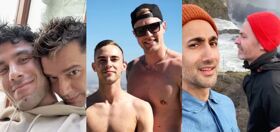


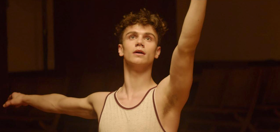
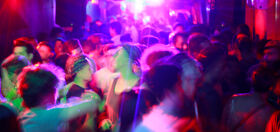
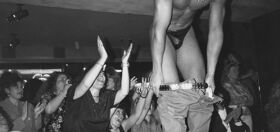

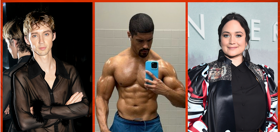
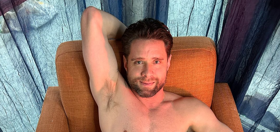
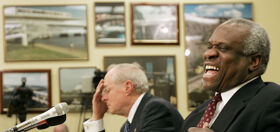

storm45701
Sadly, the fight isn’t over. There’s a concerted effort on the far right and evangelical religious circles to make gay and (especially) trans the new (old) bogeyman. This is a last gasp effort, mostly generational, but will spill over into the courts from the political world. Oberfell’s days are numbered. Hopefully once the older generations are swept into the trash heap of history, and Millennials and Gen Z take over, we can find potential sanctity and peace.
Neoprene
Nah, the LGBTQIA2S+ (and more to come) “community” will always figure out a way to stay marginalized and victimized by attacking anyone and everyone who isn’t absolutely 100% in lockstep with them, including other members of its own “community.” See almost every article on Queerty. It’s how the far left stays happy